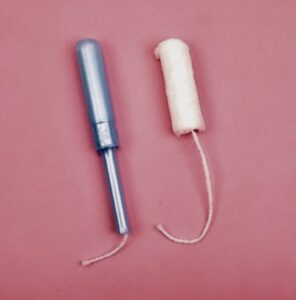Do heavy periods control your life? When it's that time of the month, do you wonder how long you'll be out of the house without access to a bathroom? Or worse, do you need to double up protection, using a backup pad for your tampon, so you don't leak?
Yes, these considerations are all hassles. Heavy periods are annoying. They can get in the way of your daily activities. But did you know that abnormally heavy menstrual cycles can lead to more serious medical problems?
Shortly, we'll explain the potential dangers of a heavy monthly flow. But having a flooding period can also be a major hassle. After all, this new study revealed that most menstrual products can't actually absorb the volume of blood that a woman with heavy flow expels during her cycle.
So, what can you do if you bleed through even heavy-flow products in an hour or less? First, make sure to report this symptom to your doctor, as this level of flow could be dangerous to your health. Then, while you figure out the cause of your heavy flow, helping craft your treatment plan, consider doubling up on products, using a tampon and pad or period underwear together in order to prevent leaks.
One potential side-effect of abnormal uterine bleeding (AUB) is anemia, when you don't have enough red blood cells in your blood. If you have untreated anemia, you can even suffer organ damage!
Now, physical side effects aren't your only concern with heavy periods. In fact, a recent study showed that this fibroid symptom could negatively affect women's emotional and mental well-being. Specifically, this unusually heavy bleeding left women feeling fear, anxiety, and anger about their condition.
But how do you know if your bleeding is unusually heavy? For our purposes, you should talk to your doctor if you have to change your tampon or pad every hour. Or if you have symptoms like heavy overnight bleeding that stains your bedding. During a normal period, for comparison, you can expect to change your tampon or pad every three hours. And some women may even go longer, especially towards the end of the cycle.
Long, heavy periods are a symptom of fibroids, non-cancerous tumors that grow in or around your uterus. But a heavy menstrual cycle could also be a sign of Pelvic Congestion Syndrome (PCS), a condition that can also lead to varicose veins in your upper thighs or lower abdomen. With both PCS and fibroids, you'll also have other shared symptoms. These include pelvic pain, pain after sex, constipation and painful period cramps. But with PCS, unlike fibroids, your pain is often worse at the end of the day, or after standing for a long time. And your risk for PCS goes up if you've had a baby, since giving birth puts pressure on your pelvic blood vessels.
Because heavy periods could be a sign of either of these conditions, it's important to discuss all your symptoms with your doctor. Together, you can discover the cause of your AUB. And determine the best possible treatment plan.
When AUB occurs for no apparent reason, certain types of birth control, like the Mirena IUD or the Nuva Ring, can help staunch the blood flow.Oral contraception and NSAIDs like ibuprofen may also help.
Unfortunately, Mirena has recently been linked to several adverse effects. The worst? It may cause pseudotumor cerebri, which is a rare neurological condition sometimes known as idiopathic intracranial hypertension (IIH). With this condition, you may develop headaches, ringing in your ears and even loss of vision. All of these symptoms could make you think you've got a brain tumor, which is why the condition's name translates literally to false tumor.
Now, we have to note that Mirena's been available for 20 years. In that time, there were less than 700 reports of IIH to the FDA. Still, 80% of IIH reports linked to Mirena were made in the last two years, suggesting tweaks in the device design may be dangerous.
Obviously, you'll have to proceed with caution before using an IUD to treat unexplained heavy bleeding. If, however, AUB is a symptom of a different, underlying condition, relief will only come from treating the cause of the bleeding. Many women who experience abnormally heavy periods may actually have one or more fibroids (a fibroid is a non-cancerous growth that develops in a woman's uterus, often causing AUB and other symptoms or side effects.)
The most important thing to remember is this. AUB is not a cause for embarrassment, but it something worth discussing with your doctor. Not only will starting the conversation simplify your daily period routines, it may also help you stave off dangerous blood loss and far more serious complications.
Sources: The American College of Obstetricians and Gynecologists
As leading fibroid specialists in Houston, we can help you get back to doing the things you love – free of pain and symptoms associated with this diagnosis.

Scheduling
Please contact our dedicated specialists to schedule a consultation today.
2025 Houston Fibroids. All rights reserved. Website Design by Healthcare Success